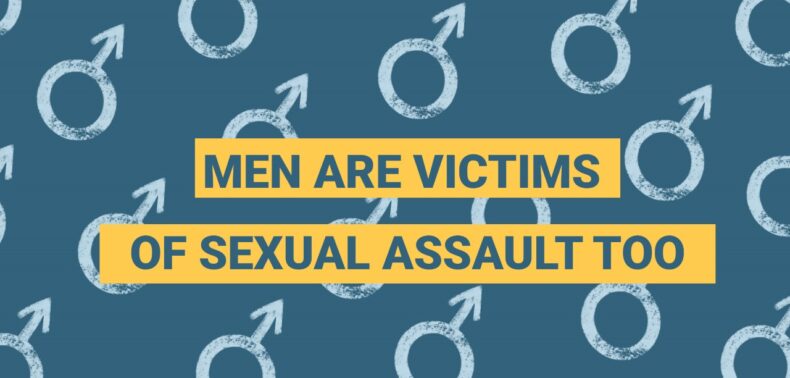Males who have been sexually assaulted may experience the exact effects of sexual assault as other survivors. Sexual assault can happen to anyone irrespective of their age, sexual orientation, or gender identity.
Some men who have survived sexual assault as adults feel shame or self-doubt, believing they should have been “strong enough” to fight off the perpetrator. Many men who had experienced an erection or ejaculation during the assault may be confused and wonder what this means.
These normal physiological responses do not in any way imply that you wanted, invited, or enjoyed the assault. Males who were sexually abused as boys or teens may also respond differently than men sexually assaulted as adults.
We generally see harassment or rape cases related to females only, so legislation is made only for female victims. But this doesn’t mean that men are away from the evil of sexual harassment or rape.
Boys and men who have been sexually pestered may have many similar feelings as other survivors of sexual assault. Still, they face many additional challenges because of ‘social ridicule’ and ‘stereotypes’ about masculinity.
While the sexual harassment of women has consistently declined in the past few years, the government has made some very productive legislation in India. But, sexual harassment of men is increasing day by day at a very high rate.
At present, the main area where males are facing this sexual harassment is at their workplaces. Mostly, the harassment at the workplace is done by female bosses or by male colleagues. Out of all places, this is one of the darkest ones.
At workplaces, sometimes the female bosses ask male colleagues to lift their shirts, show their muscles, shout at them, and humiliate them in front of co-workers. These kinds of executions push male colleagues to become the victims of sexual assault and harassment.
Sexual assault at workplaces also consists of rape, which can either be female-on-male rape or male-on-male rape. The rape of men by men has been recorded as a weapon of terror in warfare. So, other than at workplaces, male rape is also widespread in prisons, schools, coaching centers, also sometimes at home.
Sexual harassment requires more intent than any other climbing crime or issue because male suicides at workplaces are four times more than female suicides. Gender-neutral laws have found accepted in approximately 77 countries worldwide, including the Denmark, U.K, Australia and many more.
But surprisingly, the Indian Parliament has repeatedly rebuffed to make laws against sexual harassment gender-neutral in India. This problem of sexual assault with males is more frequently taking place in prisons.
According to Indian law, modesty, if at all, exists only in women. The only form in which a wrong sexual advancement on a man is recognized as an offence is sodomy under Section 377 of the IPC. Apart from that, there is no law to punish a person for molesting a man.
This absence of law doesn’t stem from the lack of crime. Surveys were conducted by several organizations between April 2005 and April 2015 among 1,00,000 men. They found out that about 98.2% of men had faced severe domestic violence from their wives and in-laws. Physical, verbal, economic, sexual, mental, emotional, and financial abuse is men’s violence.
There should be laws made under the Indian penal code to protect men against harassment. And men should also be added to the sexual harassment at the workplace act 1860. We all should know that harassment has the same impact as anyone; it might be a male or female.
Female harassment is more, but we cannot ignore or ignore that men also get harassed. People should have the same kind of interest in men’s harassment matters. Awareness should be spread that it’s ok to speak up about the harassment happening against them. There should be more NGOs, help centers and movements to help the men who face harassment.













